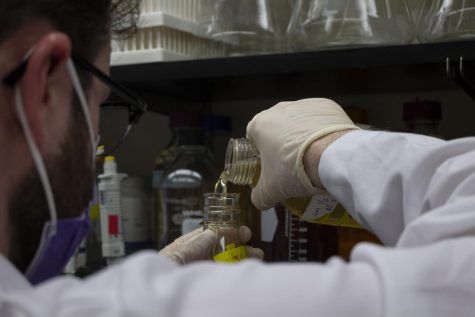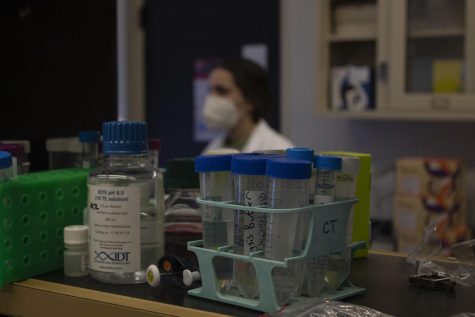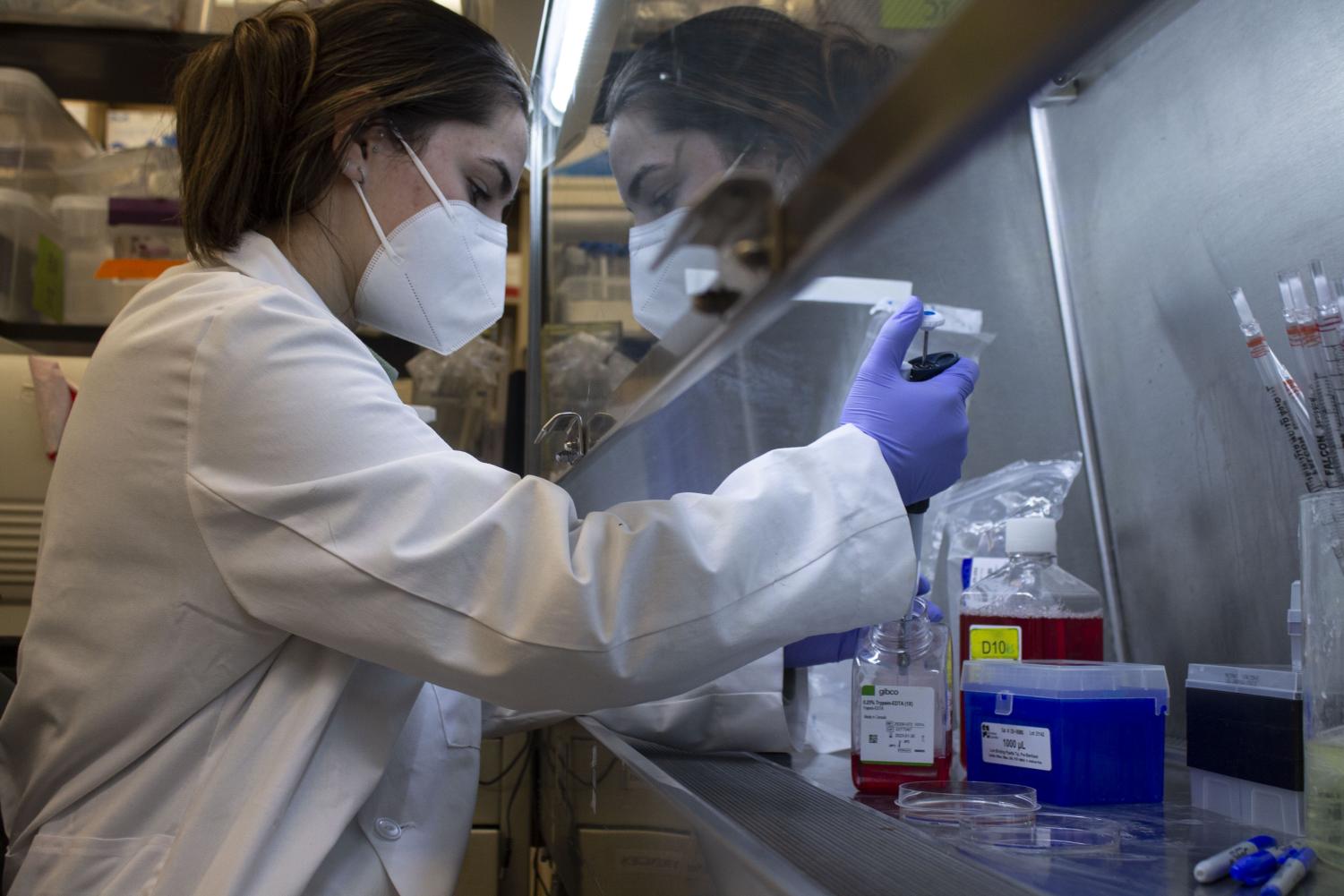Students contribute to COVID-19 research
February 10, 2022
Undergraduate students strive to understand COVID-19 vaccines in a UVM lab under Larner College of Medicine surgery professor Dr. Dev Majumdar.
Students of each graduating class work in the lab. Split into two components, half of the researchers work on mRNA vaccine development and half learn as much as they can about how COVID-19 works, Majumdar said.
Senior biochemistry major Ben Will works in the lab on the vaccine production side, looking at results of Severe Acute Respiratory Syndrome vaccinations to determine their effectiveness, he said.
“For a world changing event that has caused so much pain throughout humankind, it’s remarkable how much I’ve been able to take out of [the experience],” Will said. “[The research] provides a greater understanding [of COVID-19] and that in turn removes the fear.”
mRNA vaccines teach cells how to make proteins that will trigger an immune response inside the body, according to the CDC.
This leads to the production of antibodies that protect against the COVID-19 virus, according to the CDC.
In the lab, the students focus on antibodies to study the vaccine’s ability to neutralize the virus, Will said.
“I’m able to see [COVID-19] from the perspective of someone that doesn’t know much about science,” Will said. “And then I’m also able to look at mutations in the virus and what’s happening on a micro scale. It puts it in a different light.”

Will joined the lab in its early stages, which allowed him to involve himself in a project right off the bat, he said.
“Doing this research has been an amazing experience,” Will said. “I can’t imagine what my college experience would be if I hadn’t done this.”
Senior Samantha Staples, a microbiology major, also works on the vaccine project.
She values the opportunity to research such a relevant topic like COVID-19 vaccines, she said.
“[This research] has the potential to change the thinking of how SARS and vaccines are understood and developed in the future,” Staples said. “It’s kind of crazy to sit back sometimes and be like, ‘Huh, I’m making vaccines for COVID.’ It’s an unreal feeling.”
There’s a huge sense of community between the undergraduate students, Majumdar and the graduate students, Staples said.
Staples feels like she has a lot more information on what potentially can happen going forward with the virus and the vaccines from doing this research, she said.
“It’s crazy that I’m a senior in college able to do this research that some people will never be able to do,” Staples said.
An exciting aspect of this project is that after Staples graduates, another undergraduate student can take it over and expand it, she said.
“It’s ever evolving,” she said.

The work being done in the lab has potential to bring a lot to UVM and the greater community, said sophomore Adam Zuchowski, a biomedical engineering student.
“It’s not there yet, but it’s gonna get there,” Zuchowski said. “It just involves a little bit of forward thinking and kind of holding on tight till you get there.”
Zuchowski feels driven by his curiosity to keep discovering new information about the vaccines, he said.
“Somebody else’s similar research is on the front page of CNN, and you’re like, ‘wait, I’m actually kind of part of this,’” Zuchowski said. “I know what’s going on. And it’s a good feeling.”
As one of the younger people in the lab, Zuchowski sometimes worries about belonging, he said. But then an experiment works and he forgets about that. The hands-on opportunities he’s had through this research have enriched his college experience.
“We’re trusting the undergraduate [students] to do good,” Majumdar said. “The undergrads here are just fabulous and it’s extremely fulfilling to see them do well.”
There’s a need for engagement between people doing basic biochemical research at UVM and the undergraduate students, Majumdar said. Young people should reach out and not be discouraged.
“We’re all equal and we all work together,” Majumdar said. “I’m constantly being proven wrong.”
